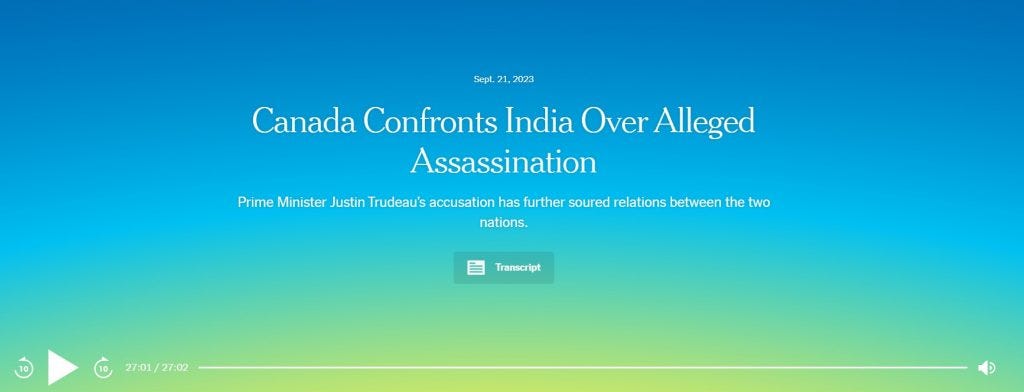Did Trudeau just help India's strongman Narendra Modi?
Assassination accusation boosts Hindu-nationalist leader
The rift between Canada and India is deepening following Monday’s accusation by Prime Minister Trudeau that the murder of a Canadian Sikh activist was linked to India’s Hindu-nationalist government.
But rather than scandalizing India’s political establishment, Prime Minister Trudeau’s accusation may be playing into the political hands of India’s Prime Minister Narendra Modi.
Hardeep Singh Nijjar, whom Indian authorities designated a terrorist and has been a wanted man in India for years, was working to organize an unofficial referendum on independence among the Sikh diaspora, when he was gunned down by two masked men outside a Sikh temple in Surrey, B.C., on June 18.
Related posts
India has flatly rejected the allegations of involvement, calling them absurd and politically motivated. In fact, the condemnation of Trudeau in India has been near-universal, as has been the criticism of Canada for coming out publicly with what some newspapers have called "a sketchy allegation" without providing further evidence or information, reports CBC.
Prime Minister Modi has projected this image of a strongman protector of the country. And to do that, you usually need a threat that you’re protecting the country against. And that’s been very beneficial to him.
NEW YORK TIMES' THE DAILY
What’s worse is surprisingly few of Canada’s allies have joined calls for India’s cooperation in the investigation of Nijjar’s murder. This may be the result of geopolitics in a world where a new Cold War is emerging, and India plays a pivotal role in the region.
As the New York Times’ The Daily podcast (one of our favourites) points out, “A large part of that reason is from the US, to the UK, to France and Germany, everybody is trying to court India. In this moment of huge tensions with China, the West has been looking to India as sort of a counterbalance. And that need is so massive that a lot of these Western powers have been looking away from some of the things that India has been doing.”
If you are somewhat baffled by what is happening between India and Canada, we recommend listening to this episode of The Daily, where host Sabrina Tavernise speaks with the New York Times South Asia Bureau Chief Mujib Mashal.
(Cover: New Delhi, India June 20, 2020: A close up portrait of Indian Prime Minister Narendra Modi, the global leader and powerful prime minister of India. Via Shutterstock)




